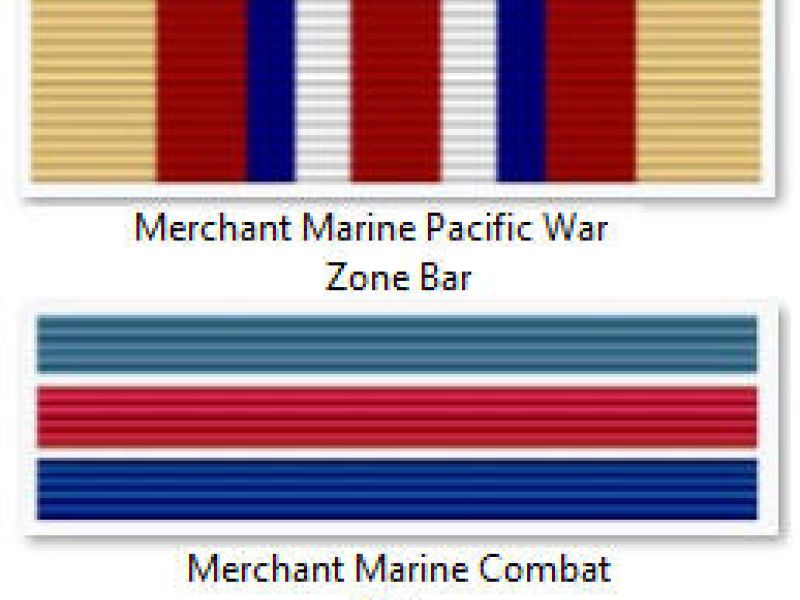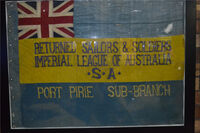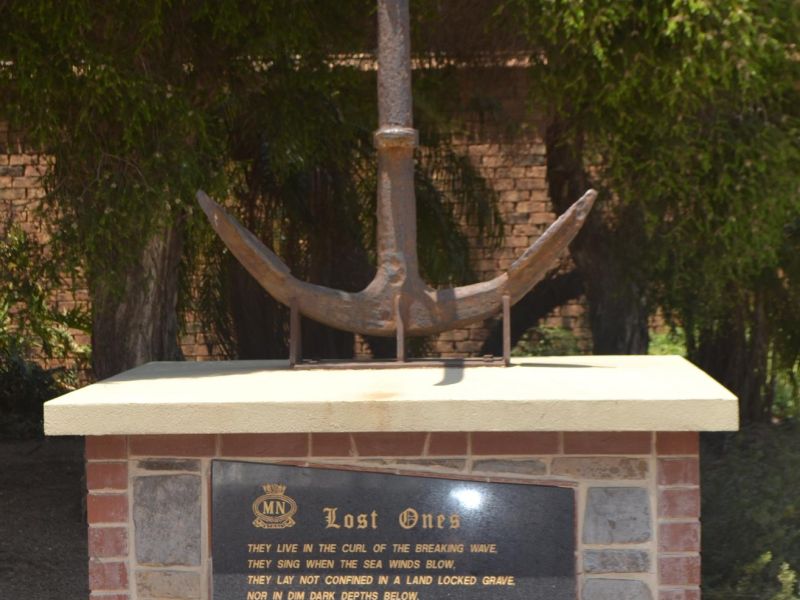Alexander James McDonald
On Friday 26th January 1945 Mrs. Alexander McDonald, of Anzac Road, Port Pirie West Extension, received an envelope through the post office bearing American stamps. Within were a neat metal badge, a beribboned bar, and two cards. Inscribed on the cards was the following:
“U.S. War Shipping Administration
This is to certify that Alexander McDonald has been awarded the Merchant Marine Combat Bar, confirming his active service with the United States Merchant Marine in a ship which was engaged in direct enemy action.
E. S. Land, Administrator.”
One card announced award of that bar and the other, the Merchant Marine Pacific War Zone Bar. Mrs. McDonald said that her husband was still at sea, and probably did not know of the honour. She believed that he was on his way home to her, for he had asked her not to write to him again for the time being. He had written last from American waters.
Mr. McDonald was well known in Port Pirie. He was an Able Seaman years ago, and served in Pirie on the tugs “Uraidla” and “Yacka”. He enlisted in the Australian Infantry Force, but an accident in Australia caused his discharge. In February 1944 he decided to go to sea again, and in the 11 months he has seen plenty of action in various parts of the world. His wife was formerly Miss Kathleen Donovan, daughter of Mr. and Mrs. T. R. Donovan of Anzac Road, Port Pirie, South Australia.
One way to understand the Second World War is to appreciate the critical role of merchant shipping. Merchant mariners were the supply line that provided virtually everything Allied armies needed in order to survive and fight on foreign battlefields. The availability or non-availability of merchant shipping determined what the Allies could or could not do militarily.
733 American cargo ships or 3.1 million tons were lost during World War 2. The crucial role of the US Merchant Marine in achieving Allied victory came at a heavy price, as mariners suffered the highest casualty rate among American service branches in the war.
Merchant ships faced danger from submarines, mines, armed raiders and destroyers, aircraft, "kamikaze," and the elements. 8,651 of the 215,000 who served perished in troubled waters and off enemy shores. Some were blown to death, some incinerated, some drowned, some froze, and some starved. 66 died in prison camps or aboard Japanese ships while being transported to other camps. 31 ships vanished without a trace to a watery grave.

 RSL (Port Pirie Sub Branch) Inc.
RSL (Port Pirie Sub Branch) Inc.